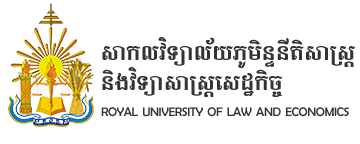Arthur is an adjudicator, independent international legal consultant, Fellow of the Chartered Institute of Arbitrators and General Editor of Emden’s Construction Law Hong Kong, 2 vols. looseleaf, Lexisnexis, Hong Kong. He is an Adjunct Professor at the Hong Kong University of Science and Technology, Senior Fellow at the University of Melbourne and a Visiting Fellow at the Asian Institute of International and Financial Law at the University of Hong Kong.
Arthur has an international reputation in the field of construction law and projects which is tied to his many years of teaching in Hong Kong at both the University of Hong Kong and the Chinese University of Hong as well as practice with Baker and McKenzie, Denton Wilde Sapte and Clifford Chance. He has over 100 publications including: Hong Kong Construction Law, 3 vols. looseleaf, Lexisnexis, Hong Kong; Construction Law and Practice in Hong Kong, (2011) 2nd edition, Sweet and Maxwell, Hong Kong (co-author); Project Finance for Construction and Infrastructure: Principles and Case Studies, (2008) Blackwell, London (co-author); The Butterworths Hong Kong Building Law Handbook, (2007) 2nd edition, Lexisnexis, Hong Kong; and The New Engineering Contract: A Legal Commentary, (2001) Thomas Telford, London, and has given over 50 conference papers and addresses.
Arthur was the Honorary Legal Advisor to the Joint Contracts Committee, the body which published the new Standard Form of Building Contract (Private) for Hong Kong in 2005; a Chairman for 10 years of the Appeal Tribunal Buildings (Hong Kong); and a founding member of the Society of Construction Law Hong Kong.
Hong Kong Construction Law, 3 vols. looseleaf, Lexisnexis, Hong Kong;
Construction Law and Practice in Hong Kong, (2011) 2nd edition, Sweet and Maxwell, Hong Kong (co-author);
Project Finance for Construction and Infrastructure: Principles and Case Studies, (2008) Blackwell, London (co-author);
The Butterworths Hong Kong Building Law Handbook, (2007) 2nd edition, Lexisnexis, Hong Kong;
The New Engineering Contract: A Legal Commentary, (2001) Thomas Telford, London.
Course: Construction Law
Course Modalities:
–Hourly Volume: 15 hours;
–Scheduled: November;
–Programs: International Master in Public International Law (Paris 8), Year 2.
Course Overview: The purpose of this course is to provide an introduction to the subject of construction law and practice in representative ASEAN jurisdictions. The course will be taught in 5 modules over 15 hours. It will consist of the following main areas: (1) Foundations: Asia, The Belt and Road Initiative, Multilateral Organisations, and ASEAN. (2) Standard Forms of Contract. (3) Public Private Partnerships (PPPs): OECD Principles, EBRD Core Principles, The World Bank, and the UNCITRAL Legislative Guide on Public-Private Partnerships 2019. (4) Project Finance: Overview, and Lessons. (5) Cambodia: Overview, Construction Law, and PPPs. (6) China: Overview, Construction and Projects, Construction Law, and PPPs. (7) Singapore: Overview, Construction Law and Green Singapore, PPPs, and the Sports Hub Case Study.
This course aims to address the following skills. By the end of the course, students should have:
- Awareness of the subject of construction law as both a discipline and legal practice area.
- Understanding of the legal, economic, and contractual frameworks for the subject.
- Understanding of the complexities of undertaking international construction projects.
Course Structure:
Foundations
- Asia
- Belt and Road Initiative and PPP Frameworks
- Multilateral Organizations
- The ADB
- ASEAN
Standard Forms of Contract
- Spectrum of forms
- Categorizing
- Traditional/Design Bid Build, Design and Build, Construction Management
Public-Private Partnerships
- Public-Private Partnerships (PPPs)
- Private Sector Involvement
- Project Structures
- International Benchmarks
- OECD Principles for Private Sector Participation in Infrastructure
- EBRD Core Principles for a Modern Concession Law
- World Bank Procuring Infrastructure Public-Private Partnerships Report 2018
- Thematic Areas: Preparation, Procurement and Contract Management of PPPs
- UNCITRAL Legislative Guide on Public-Private Partnerships 2019
Project Finance
- Overview
- Primer
- Comparison to Corporate Finance
- Lessons
Cambodia
- Overview
- Construction Law
- PPPs
China
- Overview
- Construction and Projects
- Construction Law
- PPPs
Singapore
- Overview
- Construction Law and Green Singapore
- PPPs
- Sports Hub Case Study
|
|
|
|
| The Week |
The Topics |
Required Readings |
Powerpoints and Links (below) |
| 1 |
Foundations: Asia, The Belt and Road Initiative, Multilateral Organisations, and ASEAN. Standard Forms of Contract |
Emden’s Ch 1, Introduction to Construction Contracts. JA McInnis, looseleaf, current |
Foundations I |
| China’s Belt and Road Initiative, Al Jazeera https://www.youtube.com/watch?v=j8zzL2aBo2M |
| 2 |
Foundations: Public Private Partnerships (PPPs): OECD Principles, EBRD Core Principles, The World Bank, and the UNCITRAL Legislative Guide on Public-Private Partnerships 2019. Project Finance: Overview, and Lessons |
Realizing the Potential of PPPs to Advance Asia’s Infrastructure Development. ADB & KDI, excerpt, 2019 |
Foundations II |
| Project Finance Primer (Project Finance v Corporate Finance (part 1 only), Corporate Finance Institutehttps://corporatefinanceinstitute.com/resources/knowledge/finance/project-finance-primer/ |
| 3 |
Cambodia: Overview, Construction Law, and PPPs. |
Doing Business in Cambodia: Overview. Darwin Hem, Thavsothaly Tok, Marine Bussat and Phirum Sophoan Bou, BNG Legal, Practical Law, 2020
Project Finance in Cambodia: Overview. Daniel Wein, DFDL, Practical Law, 2018 |
Cambodia |
| Morodok Techno National Sports Complexhttps://www.youtube.com/watch?v=-w4fCtnz_GM |
| 4 |
China: Overview, Construction and Projects, Construction Law, and PPPs |
China: Construction and Engineering Law, Michelle Li, Murphy Mok, Herbert Smith Freehills, International Comparative Legal Guide, September 2019 |
China |
| The Atlantic: Building a Hotel in Six Days: A Time-Lapse of China’s Construction Miracle, 29 July 2013http://www.theatlantic.com/video/archive/2013/07/building-a-hotel-in-six-days-a-time-lapse-of-chinas-construction-miracle/278191/ |
| 5 |
Singapore: Overview, Construction Law and Green Singapore, PPPs, and Sports Hub Case Study |
Building and Construction Law, Ch 26 Laws of Singapore, Commercial Law, Singapore Law Sg, Dr Anne Netto and George Tan, Singapore Academy of Law, 2015
Public-private partnership in Singapore Sports Hub, Belinda Yuen, (M-P Büch, W Maennig, H J Schulke (eds)): Zur Ökononik von Spitzenleistungen im internationalen Sport, Hamburg University Press, 2012 |
Singapore |
| Singapore Sports Hub, AECOM, 1:05 mins (master plan and landscaping)https://www.youtube.com/watch?v=8Ry8vt5KI-E
Singapore Sports Hub: Journey to the Finish Line, Bouygues Construction, 1:53 mins (time lapse of construction)
https://www.youtube.com/watch?v=ddd2aGef_k4 |
|
|
|
|
Assessment:
Assessment will be by a two-hour open book final examination that is conducted online with further information to be provided throughout the course including areas of emphasis.
To pass this course you must obtain an aggregate mark of 50% overall.
To enable the full benefit to be obtained from this course, students should ideally attend all the classes online in real time and complete the prescribed readings. For purposes of the course additional readings may improve your overall result and is always encouraged though not expected. Assessment is intended to enable students to demonstrate their capacity to understand key aspects of international construction law projects and contracting.
The examination will be held during the University examination period.
There is no mark for participation; however, participation is actively encouraged. The Zoom platform which we will be using this semester should still allow for some participation or Questions and Answers. The topics of study for the course are outlined below in seven general parts. Students will be encouraged to take an active approach to their learning in both self-study and the classroom. Sharing experiences and views will be welcomed and may play an important part in your learning and development. Students are encouraged to form study groups and work together online in the course as research has shown that co-operative peer learning enhances academic achievements through clarification of concepts, discussion of ideas, generation of approaches and problem-solving.
The course convener’s (my) role in class is to inform and facilitate understanding of the subject matter as well as to raise questions.

 ភាសាខ្មែរ
ភាសាខ្មែរ
